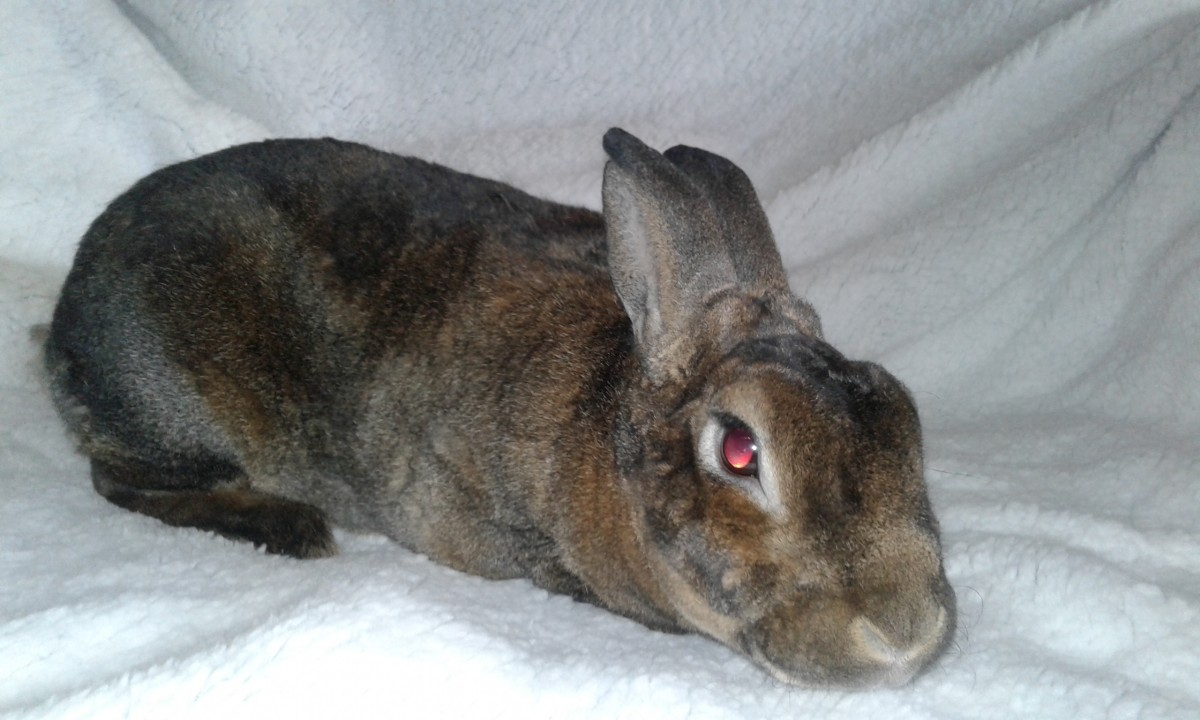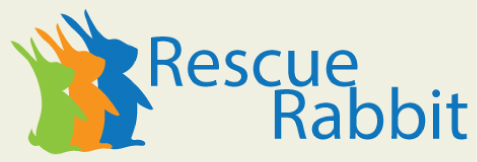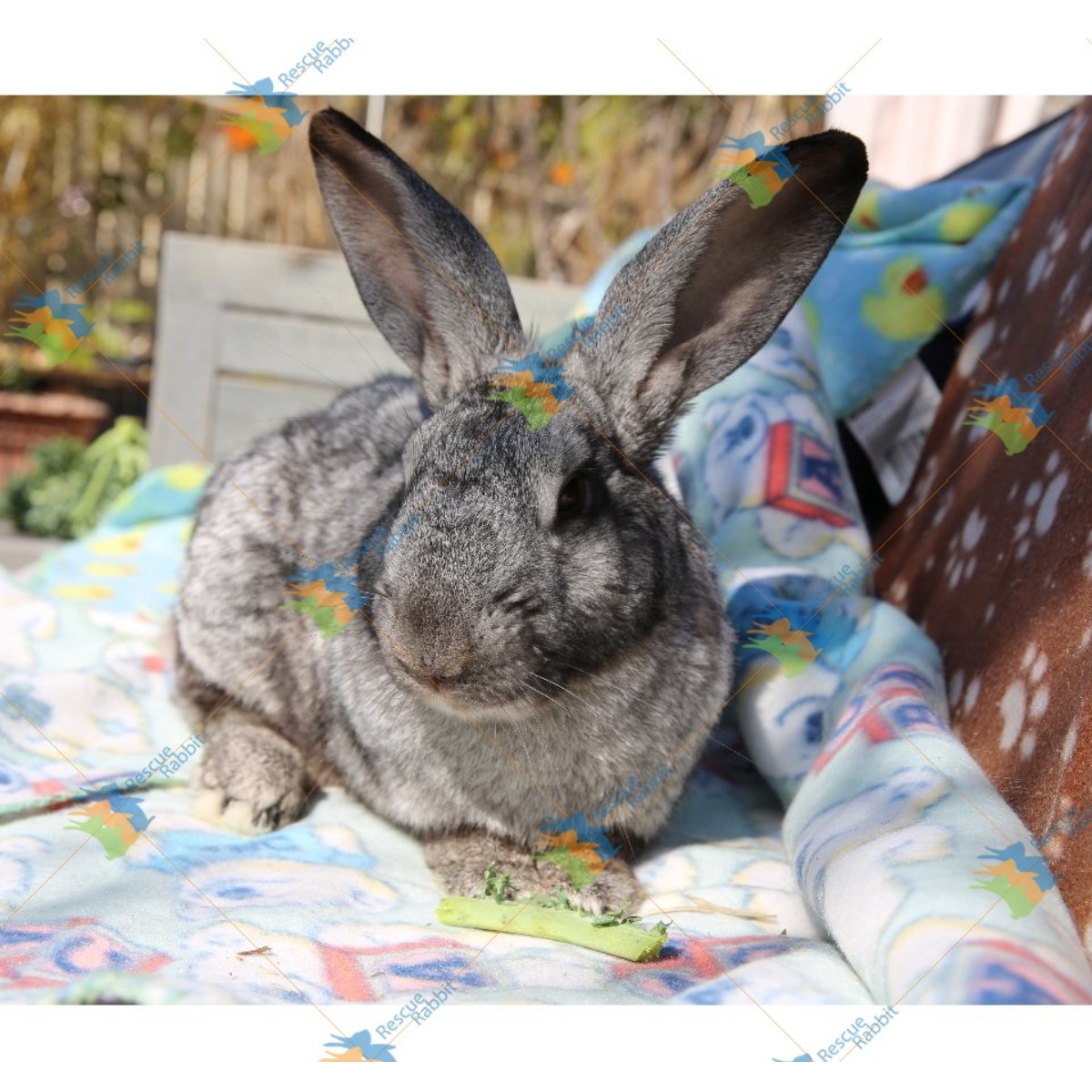
Rabbits have feelings – and rabbits are very emotional creatures! Bunnies can feel anger, jealousy, depression, happiness, loneliness, glee... as well as a wide array of other feelings! The question is to realize what your rabbit is experiencing. If you are working a full day and have a solitary bunny at home, the bunny will be waiting for you to come home. Remember, that a day for us feels like a week for them – so having a lonely bunny at home will feel as if you have been stranded in your room all alone for about a week! No one to talk to, no Whatsapp, no FB…. No one. A lonely bunny will start to show depression if not helped very soon.
The 4 main problematic states of a bunny are normally:
The Scared Bunny
New bunnies are always scared of their new environment. Thus, you keep a new bunny in a smaller safe space, where he can have quiet, and get to know all the sounds and the smells of the house, the area, and the new family he is with now. Routine is very important for new bunnies, and getting a fixed routine so he/she can start to fit into his new home, is one of the first things that need to be established. The bunny will be scared of you as well until you built trust.
Scared bunnies may cower away from you, make strange noises when you want to touch him/her, will hide under something or sit in the corner,
Scared bunnies may also start biting if you do not get them to build trust in you. Biting is usually not aggressive, but self-defence to try and stay safe. Never scream at your bunny if it bit you - rather ask yourself why? Did you smell strange, move too fast, was there something in the day that scared it? New pets in the area? Find the reason, and start building trust again.
The Depressed Bunny
A depressed bunny will huddle in a corner and have a glazed look. He may stretch out (showing that he does not have tummy discomfort) but will not hop around, play or show much interest in life.
Depression can be from loneliness, or after the loss of a bonded mate.
Depression after losing a bonded mate will go over into depression of loneliness should you not get a new friend within about a month’s time.
Remember, that just like us, bunnies would like to choose their own friends. So, should your bunny need a friend, pack him/her up and go for an outing to the nearest shelter to choose for themselves. The owner of the shelter will be able to help you correctly interpret their feelings.
A very sad bunny was given to us in April after he lost his bonded mate. When we got him, we took one bun along to see if they would bond. While he was comfortable with her, he fell in love with his next-door neighbour the first time he saw her! From a bunny that was totally disinterested in life, extremely thin and malnourished as he was not eating, dry tangled hair and grey, bleak eyes, he turned into a zooming, binkying twinkly blue-eyed boy bunny that picked up weight and bone mass quite fast again together with a zest for life – and became a bunny with so much love. These bunnies are in constant physical contact with each other and are extremely happy together now.
The Angry Bunny
Anger Issues from a bunny may be from various factors: changes in lifestyle, changes in hormones, pain somewhere in the bunny’s little body, and some other factors. If you have a young bunny, they may start to have anger issues while in their 4th- 7th months – the Teenager years. Yes, bunnies are so much like children. Your teenager may slam the door, your bunny may thump his disapproval of something small.
When your neutered / spayed, calm bunny of so long suddenly has anger issues, and nothing in the environment has changed ( you moved / the neighbours got a cat etc); you must check your bunny for pain. It may be pain from teeth (see if there is any wetness around the mouth, drooling or bad breath, and if so see a rabbit vet as soon as possible); it may be from a broken or lost toenail or even a sore on the hock as well. Lots of digging may show one toenail that needs clipping. Remember to check the "thumb" nail as well when clipping!
Angry bunnies may dig a lot, to dig our their frustrations - much like a boxer going to exercise to get all the bad energy out.
Chewing and grunting may also be signs of anger issues, but then chewing may also be the result of anxiety.
Nesting instinct or false pregnancies in unspayed females can also lead to temporary anger - this is all hormonal.
Your bunny may have an anger issue from something that happened to him/her in the past, so stay calm and build trust to show him he/she is safe now.
The Anxious Bunny
We have some extremely anxious bunnies. Anxiety in bunnies works much like anxiety in humans, and you should not confuse the two feelings.
The scaredness of outside predators and people that tried to catch them for food is etched so deep, that they start stressing about the slightest changes. A sudden sound or movement will put them in FLIGHT mode. Bunnies may have Flight or Fight responses in situations where they feel threatened.
One bun, in particular, will start chewing immediately should he start feeling anxious, just as a person with anxiousness will start fiddling with their hands, hair etc. Darkness is one of the triggers of this bun's anxiety, as he was extremely scared at night times before he was saved. The only way to calm him down is to hold him tightly – but not pick him up – until he relaxes. Anxious bunnies leave you with lots of holes in everything……
Bored Bunnies will also chew, in a different way than anxious bunnies. It is thus important to put in lots of new toys and playthings for your bunny.
Try to see what feelings you can see in your bunny, understanding the feelings is the first step to correcting them and turning him/her into a happy rabbit.

